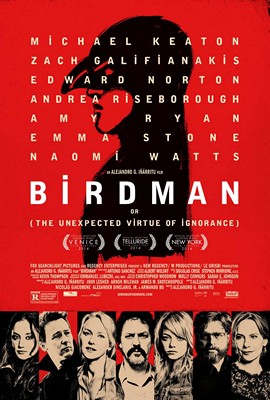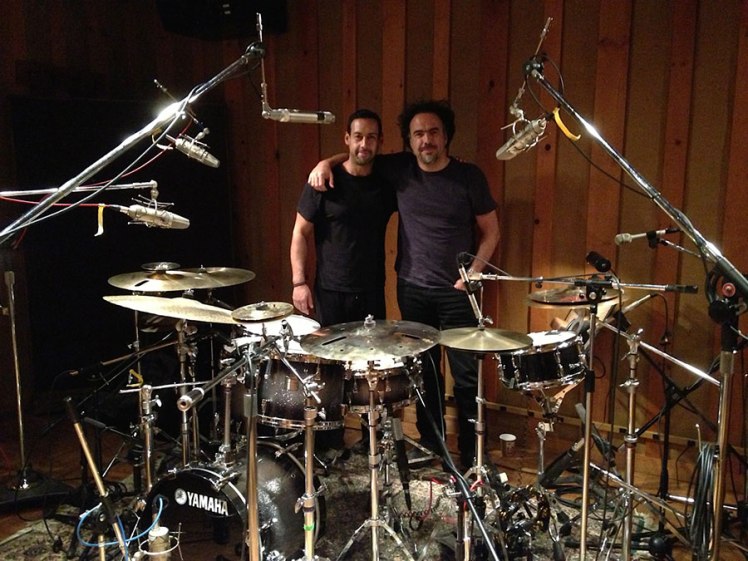
Birdman: the one with Michael Keaton and the really, really, really long take. While telling the story of an aging actor discontent with his current life and position in the industry, Birdman brings the magic of movies back with its seamless editing and cinematography, forcing the audience’s eye to perceive most of the movie as a single take. It won for best directing, writing, cinematography, and best picture at the 2015 Oscars. That being said, it seems natural to start talking about Birdman’s beautiful cinematography, writing, directing, editing, etc., right? Well, sure, but what about the music?
One aspect that has always interested me in the film industry is the score, the importance of music in filmmaking, and what choices are made going into this process. I think this aspect – along with sound in general – is something that is often overlooked, when, the brutal reality of it is that sound and music are crucial in creating a clean and convincing as well as emotionally and tonally moving final product. And, in Birdman, the score of mainly drums alone is most definitely a crucial aspect in terms of pacing, mood, and the overall effect of each riveting scene. Director Alejandro González Iñárritu and composer Antonio Sanchez delve into this subject in an article by Bryan Abrams, editor-in-chief of The Credits, which can be found on wheretowatch.com. Director Iñárritu explains, “By editing, you can alter rhythm and pace. Not having that tool in a comedy can be extremely challenging,” he continues, “So I thought the drums as the main score would provide the film not only a good vibe but the possibility in helping me find the beat it needed.”
So, how did the director and composer go about coming up with a drum score to fit the movie just right? Iñárritu and Sanchez explain that the drums were improvised from the beginning. Iñárritu would describe a scene to Sanchez to see what product might come out of it as Sanchez tried to fulfill Iñárritu’s creative vision and desires. After splicing the beats with the film, Sanchez found that the sound was just too pristine, and that it didn’t fit the tone of the characters and their motivations. “Because of the nature of the movie and the characters, Alejandro wanted something a little dirtier, a little greasier, so when we did final stuff in L.A., I prepared the drums in a way to sound old and rusty and more organic.” A little detail that I found most interesting was Iñárritu and Sanchez’ close attention to detail in syncing audio with the precise movements of the film as we sometimes see a drummer playing on screen during a scene. Sanchez explains that he had to work into the score what the drummer in the scene was playing, and match every hit precisely so that it would line up – something that, in a lot of films, gets overlooked, and when you pay close attention, often times the timing of the music and the performer on screen is completely off (even in Whiplash – a movie centered around music.)
Antonio Sanchez’ example of composing and working closely with the director in Birdman really exemplifies the process as well as the importance of music in film. Whether or not the solo drumming works for viewers in terms of a fulfilling cinematic experience, or in terms of creative and emotional motivation, I think it’s safe to say that the choice to have drums as the main score was definitely an ambitious one. This aspect adds to the magnificence and almost perfection of the film, and it shows just how important music is in post-production. Without this particular score and the amount of work that was put into it, the movie would not be the same. Good job, Sanchez.
Click here to listen: Doors and Distance by Antonio Sanchez

Sanchez (left) and Iñárritu (right)